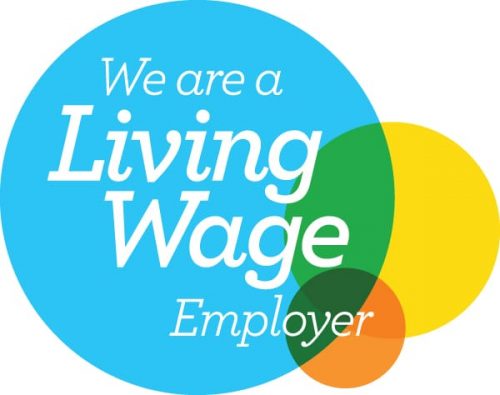Sternberg Reed is proud to be a Living Wage Employer. Not only that, the minimum amount we pay our employees is the Real Living Wage – and at the London Rate. It is significantly higher than the statutory National Living Wage. It includes staff aged 18 and over, not only over 25s as required by the Law.
Independently calculated each year, The Real Living Wage is based on what employees and their families need to live.
As Living Wage Employers we choose to pay the real Living Wage on a voluntary basis.
The rates apply to all workers over 18. Recognising that young people face the same living costs as everyone else.
Paying a wage that is enough to live on is good for business, good for the individual and good for society.
In April 2016 the Government introduced a higher minimum wage rate for all staff over 25 years of age.
However, the Government’s ‘National Living Wage’ is not calculated according to what employees and their families need to live.
Instead, it is based on a target to reach 60% of median earnings by 2020. Under current forecasts this means a rise to less than £9 per hour by 2020.
For under 25s, the minimum wage rates also take into account affordability for employers.
We want to ensure that all our employees earn a wage that meets the costs of living. Not just the minimum set by the Government.
Good for Business
By paying the real Living Wage we are voluntarily taking a stand, along with other like minded employers, to ensure our employees can earn a wage which is enough to live on. That basic fairness is at the heart of what the Living Wage campaign is trying to achieve and why we choose to go further than the Government minimum.
More than 80% of London Living Wage employers believe that implementing the real Living Wage had enhanced the quality of the work of their staff. Two thirds of employers reported a significant impact on recruitment and retention within their organisation. Absenteeism had fallen by 25% on average. 70% of employers felt that the Living Wage had increased consumer awareness of their organisation’s commitment to be an ethical employer.
Good for Individuals
For people who are paid the real Living Wage it means the difference between just getting the Government minimum and earning enough to afford the things you need to live, like a decent meal, a warm home and a birthday treat for your children.
Many employees also report improved job satisfaction. An independent study found that 75% of employees reported increases in job quality as a result of receiving the Living Wage. 50% of employees felt that the Living Wage had made them more willing to implement changes in their working practices; enabled them to require fewer concessions to effect change; and made them more likely to adopt changes more quickly.
Good for Society
Low pay makes it difficult for employees to find time for community and family life. The causes of poverty are complex and in order to improve lives there should be a package of solutions across policy areas. The Living Wage can be part of the solution.
For further information, visit The Living Wage Foundation website here
